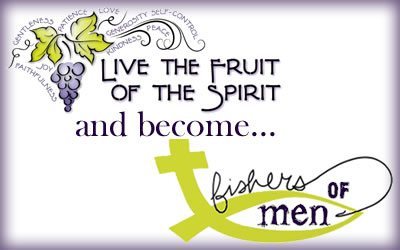Background
As a new convert of the mid ‘70’s, I was part of a worldwide movement that embraced a Jesus who was prepared to stand out from his culture and society, speaking and acting for the lost and poor. We embraced a holistic gospel that was passionate to see people come to know this Christ and experience His forgiveness and transformation, while at the same time having a concern for physical and social needs, both personal and societal.

Many went out into their neighborhoods and further into the world with the intention of caring for the poor and vulnerable and speaking a gospel of reconciliation with God through Christ. Our expectations were high. For myself I ended up living in a slum community in Manila for 9 years with my husband and children as part of Servants to Asia’s Urban Poor. Our beliefs took a battering and many of our expectations were unmet. Back in the west, many churches were also busy in their communities, setting up trusts and projects that expected to see the poor aided and the lost saved. Many did come into the church as a result of these endeavors, but over time, the trend was to see the projects become more effective and professional in terms of meeting social and physical need, and less effective around the proclamation of a gospel of salvation through Christ. For some it even became offensive to ‘peddle the gospel’, feeling that the message communicated was one of exclusion and non-acceptance and the idea of sin was to crush the vulnerable with a greater burden of guilt and shame.
You did not choose Me but I chose you, and appointed you that you would go and bear fruit, and that your fruit would remain.
~John 15:16
The gospels clearly indicate that the people of God can expect to be fruitful. Some have limited this to the character fruits of the Spirit, but when Jesus tells Peter that ‘from now on you will be catching men’ and the command to go make disciples, clearly there is an expectation that this fruitfulness will also be found in what happens in the lives of others.
Types of Fruitfullness
Physical – meeting of physical human need such as food, clothing and shelter and adequate financial resources.
Social – Creating places and opportunities for belonging and connectedness to others. Creating community cohesion. This may also involve learning and employment programmes that enable people to more fully participate in society, builds self esteem and independence.
Emotional – Personal emotional development and learning that creates greater internal and external harmony for the individual. Inner healing that leads to changed behavior etc.
Spiritual – the development of a relationship with the unseen world, which for us as Christians is about development of the relationship with the Creator God through coming to know and submit our lives to the Christ who is King. This brings us into the journey of transformation by the Holy Spirit from within and into fellowship with His church.
The parable of the Seeds (or the ground) tells us that not all our efforts will achieve successful outcomes. To a significant extent, fruitfulness or positive outcomes are the responsibility of the one who receives or is given the opportunity for ‘new life’.
While we are not responsible for the outcomes of what we do in good faith, a reflection on those outcomes gives us food for learning and potential information that aids in the development of what we do to be more effective for the sake of others.
There is a current reality that different places, churches and activities are seeing different types of outcomes. For a long time we have wrestled with the desire of the community of faith to see ‘converts’. To see some come into relationship with God through Christ, such that they experience forgiveness, transformation and join the fellowship of believers.
Over the years many ministries that began with the hope that this would be one of the outcomes have become disenchanted, as they have not seen this happen. There was, as part of this, often a belief that Christians and non-Christians having time together would lead to some kind of awakening in the non-Christian who start seeking. This seldom happens. Across the Baptist movement there was then a readjustment of expectations along with some new thinking about the Kingdom of God and Shalom. This brought the idea that where we were able to facilitate personal development, relationship and belonging for the lonely, and community cohesion, we were achieving what God intended. While still encouraging personal faith it ceased to be an expectation that many would come into a strong and vibrant personal faith.
At this point in time, many churches are seeing the lowest growth and numbers of baptisms that they have experienced since they began counting. At the same time, this is not a universal experience. There are a group of churches who are actively involved in their communities and also report seeing people come into new relationship with Christ alongside seeing the other aspects of fruitfulness… social, emotional and physical.
To the casual observer such as myself, it seems that these particular churches are not running programmes or activities that differ greatly from what others are doing, but they have practices that surround those activities and ways of thinking and acting that make a difference. I emphasise that this is based on my own observations of a variety of churches across denominations, and has no research or solid data to back it up!
What I have observed is that the characteristics of church activities seeing people come to Christ are as follows:
- A clear focus on evangelism with practices of sharing faith in both informal and formal (running groups like Alpha) ways. People involved in community ministries can share experiences of sharing their faith with others and have no fear of doing so. There was a lack of fear about causing offence or of minimising evangelism for fear of affecting possible funding streams.
- Evangelism and community impact are not prioritised one over the other, but are both seen to be important kingdom activities.
- Team – community ministries across the church saw themselves as a whole team and within each ministry had strong practices of support, prayer, planning and sharing together. This ‘teamness’ may involve a group across more than one church.
- Theology of Holy Spirit transformation – leaders and volunteers saw themselves as on a journey of being transformed and were constant learners, while also having an expectation of the Holy Spirit at work in others and their communities. This gave them current stories of God’s power at work in their lives, having a fresh and open faith journey and gave an attitude of identification with those in the community.
- Submission to church leadership – Community ministry leaders worked closely alongside church leadership and saw themselves as submitted to the leaderships input and direction. Where a trust was operating, which has its own structure, this was not a strongly visible line separating that operation from church leadership. The manager of a trust was often on the church leadership team.
- Constant evaluation and preparedness to change in response to the community and God’s leading. Also in this a creativity where individuals were free to respond in some unique way as part of the mix, but also came under the CM leadership direction.
- Volunteerism was strong across the generations.
- Prayerfulness – all effective ministries were soaked in prayer of all kinds. The teams prayed regularly, had prayer needs on the walls, had intercession times, provided prayer opportunities for attendees within the ministries themselves and were supported by prayer in church prayer times.
- Healthy structure – clear governance, management and structures ( processes and policies) that hold good process and minimise conflict. Allows for the focus to stay on ministry with efficient decisionmaking.
Common issues that may hinder this outcome:
- Community facing ministries are not part of an overall plan for reaching our community. They are disconnected from one another.
- Most ministries are heavily focussed on mothers and children.
- There are no transition or linking activities for seekers such as Alpha or Support groups which are Biblically based
- Often you see groups and programmes that have the focus of providing something FOR others. This is an approach being questioned by many as it is not effective for community impact or creating opportunity for the participants to contribute to meeting their own needs.

Ruby Duncan









0 Comments